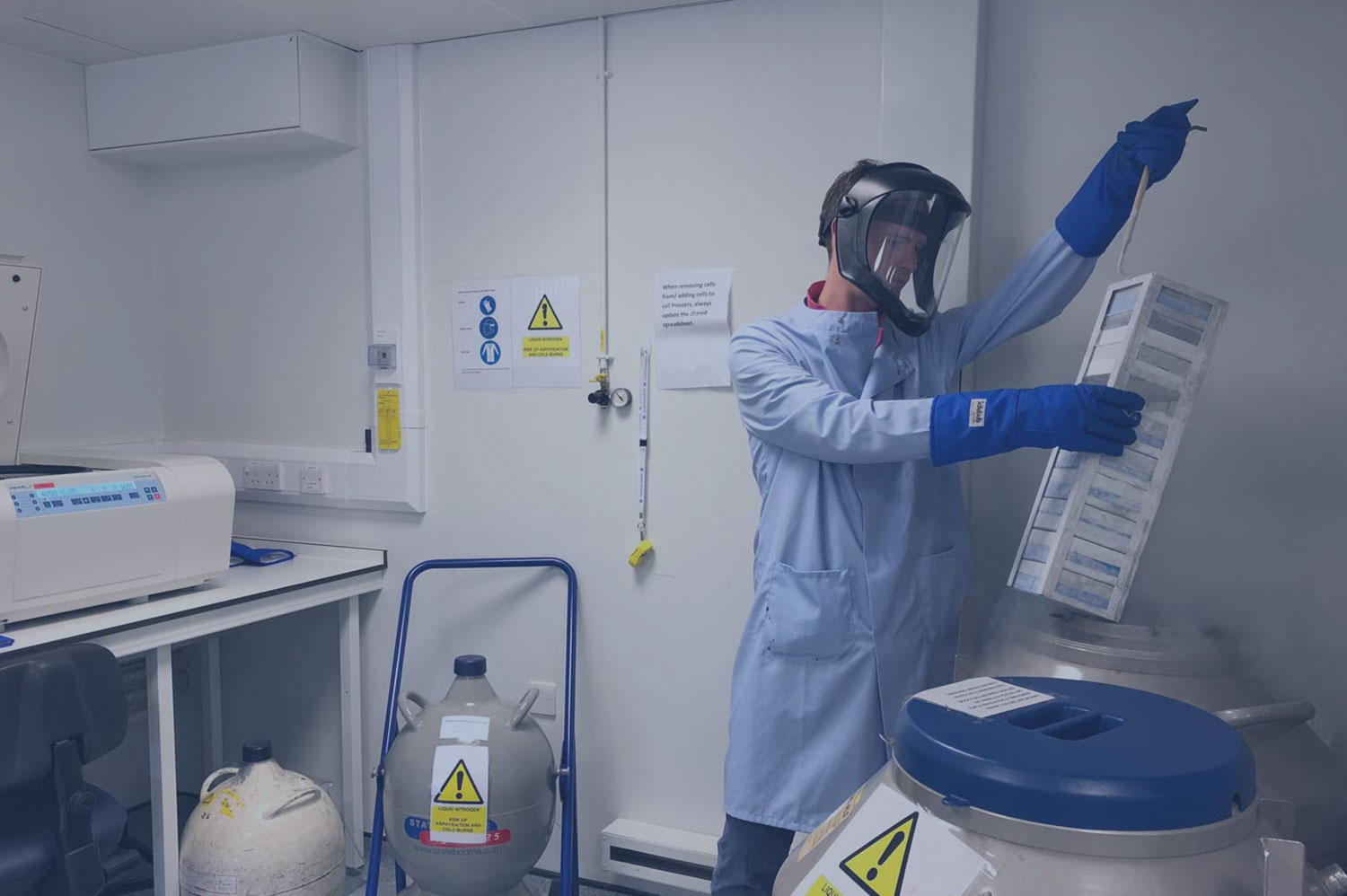
A 34 year-old wife, mum of two and cancer sufferer.
“Four years ago I had been happily juggling my busy role in investor relations at Infracapital with motherhood, when a trip to my GP with a minor cough resulted in a diagnosis of an advanced form of a rare and complex cancer, Adenoid Cystic Carcinoma (ACC) and changed our lives forever. The week of scans, biopsies and consultant appointments that led to my diagnosis was utterly terrifying and heart breaking – it is difficult to describe the depths of despair, and the sheer strength required not to fall into the deep dark precipice that comes with facing such a diagnosis.
With no other symptoms, and being a young, fit and healthy non-smoker, it was a huge and horrid shock to us all. The cancer had taken over my right lung and surrounding areas, and within 2 weeks, I underwent a 9-hour operation to have my entire right lung removed, as well as areas of my diaphragm and surrounding tissue. What followed was a relentless battle to overcome the excruciating pain, physical limitations and draining anxiety, whilst doing my best to be mum to Olivia and shield her from it all.
The challenge with ACC is that it does not respond to chemotherapy and there is no known cure for the disease. We were advised that the cancer would likely return, but there was no way of telling when or where that would be. In November 2017 following further rounds of terrifying scans we were dealt the devastating news that I had already suffered a relapse. I now have many tumours in my remaining left lung, as well as my spine. I have had many different treatments along the way, including lung brachytherapy in the US, immunotherapy, further radiation and major surgery to my spine.
Given what is known about ACC to date, we are in the difficult situation of searching for treatment options which we hope will hold off the progression of cancer for as long as possible. One of the hardest aspects of our journey has been the lack of knowledge around treatment options. The continuous contradictions in opinion from the few leading ACC specialists about my treatment plan has been both daunting and demoralising at times. Together with our families, we have worked tirelessly over the last four years to research and assess all the treatment options available. It has been incredibly difficult and immensely stressful to be tasked with making such enormous treatment decisions, and finding the right team of experts to work with.
Through our research, we met with Medical Oncologist and Clinician Scientist Dr Rob Metcalf, who is the UK’s lead researcher into ACC.”
What is ACC?
Adenoid Cystic Carcinoma, Often abbreviated to ACC, it is a rare and frequently lethal type of cancer. It typically originates in the salivary glands but can also start in other types of gland in the body such as those in the lung, breast and skin. The two defining features of this disease are a high chance of spreading from the primary tumour site and resistance to current drug therapies. These features combined mean this is the most lethal of salivary gland cancers and a cure is not currently achieved for most patients. Being a rare type of cancer, ACC is not in the public spotlight and does not benefit from the substantial government grants and fund-raising efforts that more common cancer types benefit from. There is an urgent need to develop new and better treatments.
Dr Rob Metcalf
A Medical Oncologist and Clinician Scientist, based at The Christie Hospital in Manchester, who is the UK’s lead researcher into ACC. Dr Metcalf’s research focuses on understanding more about adenoid cystic carcinoma with a line of sight of developing new and better treatments. Through his medical oncology clinical practice, most patients he sees have ACC. He arranges tumour profiling to identify different groups of patients who may benefit from targeted drug therapies matched to their specific profile. Dr Metcalf sets up and runs clinical trials to offer new treatments for patients identified through this approach. Alongside this, he has a laboratory research program focused on ACC. His first laboratory focus is to develop a new detailed genetic and immune characterisation of ACC. This understanding will accelerate the development of both new targeted therapies and immunotherapies. His second focus is to understand the underlying biology of ACC: to determine how the disease starts, why it has such a high chance of spreading and why it is resistant to drug therapies. Dr Metcalf will then translate the new understanding from these laboratory studies to infirm the development of new clinical trials to improve survival for ACC patients.
The Ella Project
When researching her treatment options in detail, Ella met with Dr Rob Metcalf in Manchester and was determined to support his work in any way she could. This became possible with new funding from Syncona and the infrastructure industry, enabling Dr Metcalf to initially set up two new projects, now expanding to three, known collectively as the ‘Ella Projects’ to further the below causes.
This comprises three interrelated studies (ELLA01, ELLA02 and ELLA03) aiming to comprehensively characterise the genomic landscape (ELLA01) and the immune landscape (ELLA02) of adenoid cystic carcinoma and to analyse fresh ACC tumour samples (ELLA03).
This will form a globally unique resource to better understand adenoid cystic carcinoma which is a rare and lethal disease with no effective drug therapies.
The results of these studies will enable a new method of classification of adenoid cystic carcinoma and underpin the development of new treatment approaches which are urgently needed in this disease.
The Infrastructure Industry Foundation (IIF) is a cross-industry event with the ambition of creating a lasting legacy for the industry.
With the generous support of our members, over £480,000 was raised last year to establish an overarching industry initiative. There is clear growing recognition of the potential for greater diversity to yield palpable benefits. These benefits will be felt internally (by the industry, its funds, portfolio companies and investors) and externally (by citizens and communities in which we operate).
The ambition has been to create an initiative that becomes a permanent feature of our industry. With a mission to both empower and equip those from least advantaged backgrounds and to inspire young people through greater awareness and understanding of the industry – with the ultimate aim to attract a greater array of talent to the industry.
Following an initial commitment to The Sutton Trust, a leader in social mobility, advocacy and research, we engaged with a social impact consultant to design a delivery model that would maximise the industry’s potential impact, and set about
a detailed period of assessing potential charitable partners. As well as their evidence of impact, our partners have been selected based upon their theory for change, the barriers they address and ultimately the opportunity they offer for our industry to have a role in raising awareness or supporting talent through to our industry.
The IIF has selected a portfolio of partners which offer a complementary set of capabilities and foci to widen access to the infrastructure industry. These partners together should deliver maximum impact by having broad reach alongside deep engagement to equip, empower and inspire least advantaged students.
The intention is to build a model and portfolio across schools, universities and early career providers. We have decided to focus our initial attention on school bracket, recognising the first challenge for many talented young people is access to top universities and a lack of empowerment about their career opportunities. We have identified and intend to engage with preferred university and alumni partners in the medium term.







































